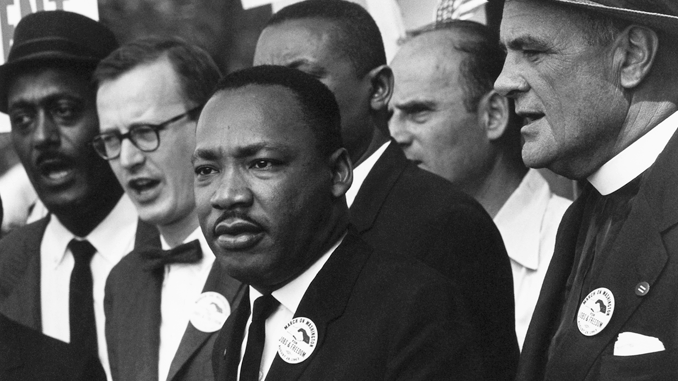
Today is the third Monday in January, which is the observance of Martin Luther King Jr.’s birthday. That date was chosen because of its proximity to his actual birthday, January 15th. Today, there will be many celebrations of his life and the positive effect he had on the United States, and I will be joining them. There will also be some attempts which, in my view, pervert his work… and those, I reject.
When the holiday was originally proposed, when it finally made it through a contentious Congress and was signed into law by Ronald Reagan in 1983, and as it was pushed through the handful of states which initially refused to recognize it, the message was the same. It was an effort to commemorate the successful development of civil rights in America after centuries of turmoil, with specific recognition of the pivotal role of Dr. Martin Luther King Jr.’s philosophy of nonviolence.
In the years since the holiday’s passage, I have seen some groups and prominent individuals attempt to redefine the holiday, and his legacy, by focusing nearly exclusively on one document, his letter from a Birmingham jail. This letter, they claim, illustrated his truest feelings on the matter of civil rights in this country and demonstrate his support for any and all immediate action to push for whatever change they desire. It shows, in their view, a support for radicalization.
My issue with this interpretation is that the views in that letter, while not directly contradicting the remainder of his work, at the very least run askew of it. For the great majority of his life, he pressed for action not “by any means necessary” but rather by the appeal of people to others’ better natures, construction vs. destruction. Perhaps most importantly, had his legacy been presented as a call to radicalization, his birthday would never have become a national holiday. There was barely enough support behind a celebration of civil rights for all, there would not have been enough if it had been presented as a call for aggression, or (equally as bad) a call for blacks to see themselves as a group to be held apart from the body politic.
His legacy is one that says we are all equal, the same legacy which is shared by Thomas Jefferson, George Washington, John Jay, John Adams, Hamilton, Franklin, and the rest of the founders. He was instrumental in helping to bring that legacy to fulfillment. He is celebrated.
His legacy is not, however, a call for unity over all else… another false narrative I’m hearing today. MLK did not call for people to stand and link arms with the KKK; he called for all decent people to stand against them. Yes, hatemongers and racists were to be accepted and embraced, but only after they had abandoned their evil and atoned for it. Unity was a message which was combined with basic decency and the recognition of the foundational morality of universal human rights. Acceptance into the general community was a reward for those who recognized that.
Today I’m hearing expectations that I ignore an attempt to overthrow the government because of unity, and there are suggestions that MLK’s legacy was supportive of that concept. It is not.
I’ll celebrate his legacy today, because he earned that and because it is a recognition of the best of America. I will not accept the political agendas of those who would subvert that legacy.
